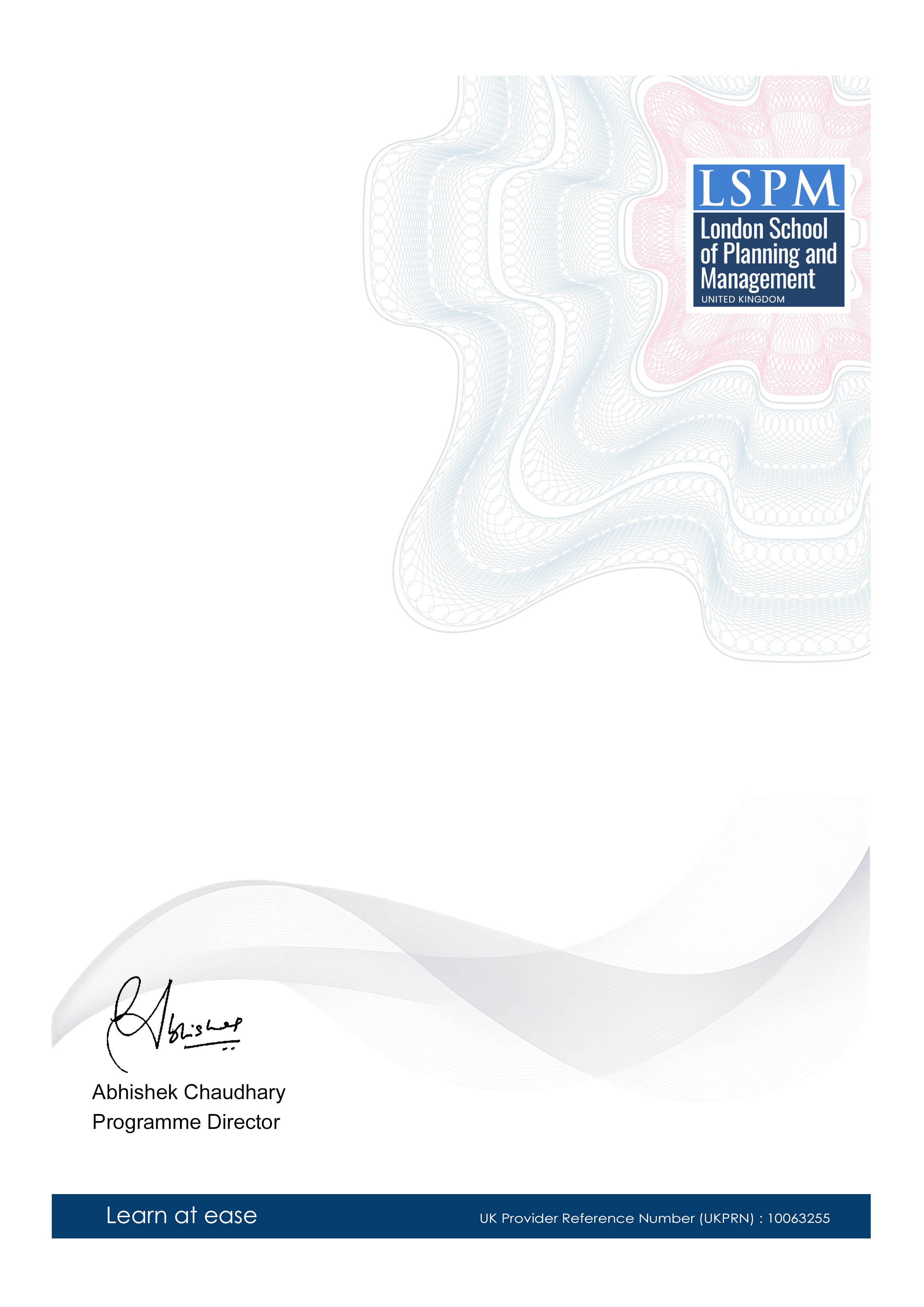Certified Specialist Programme in Climate Change and Zoonotic Diseases
-- viewing nowThe Certified Specialist Programme in Climate Change and Zoonotic Diseases) is a comprehensive course designed to equip learners with essential skills to tackle the global challenges of climate change and zoonotic diseases. This programme is crucial in the current context, given the increasing emphasis on disease surveillance and control in a rapidly changing climate.
2,880+
Students enrolled
GBP £ 149
GBP £ 215
Save 44% with our special offer
About this course
100% online
Learn from anywhere
Shareable certificate
Add to your LinkedIn profile
2 months to complete
at 2-3 hours a week
Start anytime
No waiting period
Course details
• Climate Change and its Impact on Zoonotic Diseases
• Introduction to Zoonotic Diseases and their Transmission
• Climate Change Factors and Zoonotic Disease Emergence
• Surveillance and Monitoring of Climate Change-related Zoonoses
• Climate Change Mitigation and Zoonotic Disease Prevention
• Public Health Policy and Climate Change Adaptation Strategies
• Case Studies: Climate Change and Emerging Zoonotic Diseases
• Climate Change and Antimicrobial Resistance in Zoonotic Pathogens
• One Health Approach to Climate Change and Zoonotic Diseases
• Future Perspectives: Climate Change, Zoonotic Diseases, and Global Health Security
Career path
Certified Specialist Programme in Climate Change and Zoonotic Diseases: This section presents a 3D pie chart with relevant statistics related to the UK job market trends, salary ranges, or skill demand for professionals involved in climate change and zoonotic diseases. Explore the different roles and their respective percentages in the field.
Data Scientist: These professionals analyze and interpret complex data, such as climate change indicators and disease patterns, to support decision-making and drive environmental action. (25%) Epidemiologist: Epidemiologists study the patterns, causes, and effects of diseases in populations, including zoonotic diseases. They play a crucial role in understanding and mitigating the public health impacts of climate change. (20%) Climate Change Analyst: These experts assess the impacts of climate change on the environment, society, and economy, proposing mitigation and adaptation strategies. (18%) Public Health Specialist: Public health specialists focus on improving community health through education, policy development, and program implementation. They address the challenges posed by climate change and zoonotic diseases. (15%) Environmental Policy Advisor: These professionals shape and implement policies to protect the environment and promote sustainable development, addressing climate change and zoonotic diseases risks. (12%) Zoonotic Diseases Specialist: These experts research and manage diseases that can be transmitted from animals to humans, playing a significant role in understanding and preventing the spread of zoonotic diseases linked to climate change. (10%)Entry requirements
- Basic understanding of the subject matter
- Proficiency in English language
- Computer and internet access
- Basic computer skills
- Dedication to complete the course
No prior formal qualifications required. Course designed for accessibility.
Course status
This course provides practical knowledge and skills for professional development. It is:
- Not accredited by a recognized body
- Not regulated by an authorized institution
- Complementary to formal qualifications
You'll receive a certificate of completion upon successfully finishing the course.
Why people choose us for their career
Loading reviews...
Frequently Asked Questions
Course fee
- 3-4 hours per week
- Early certificate delivery
- Open enrollment - start anytime
- 2-3 hours per week
- Regular certificate delivery
- Open enrollment - start anytime
- Full course access
- Digital certificate
- Course materials
Get course information
Earn a career certificate

